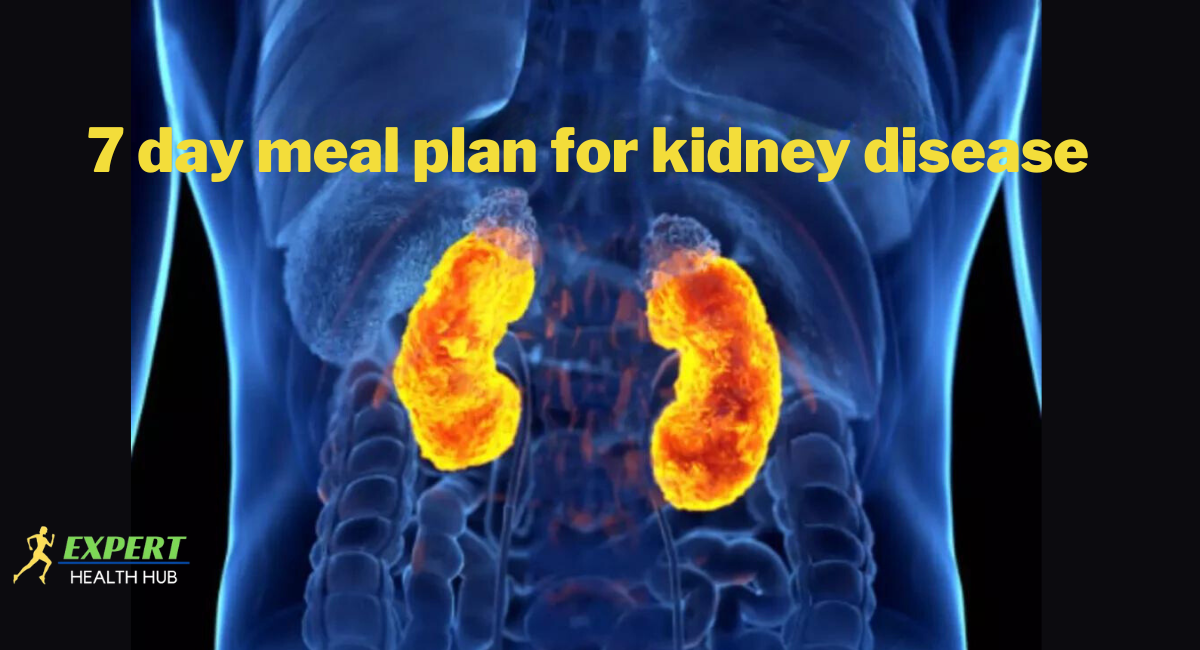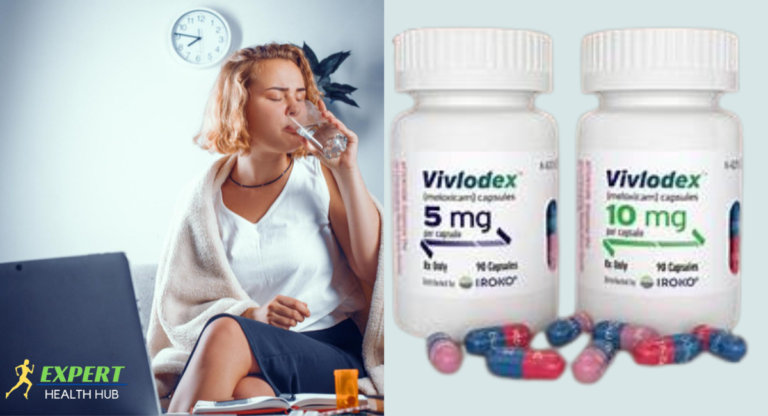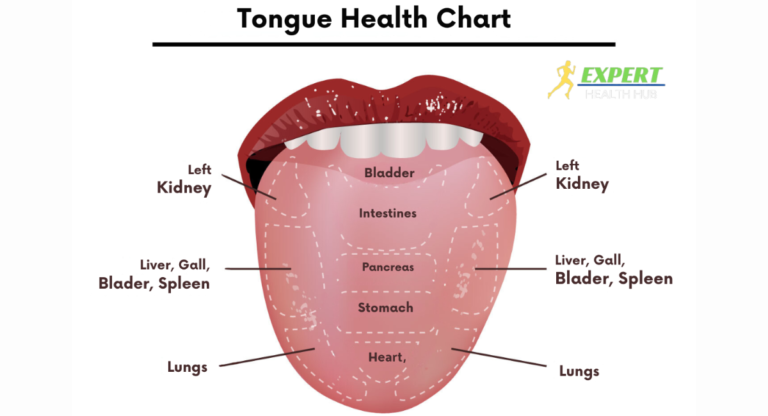7 day meal plan for kidney disease
7 day meal plan for kidney disease
Introduction:
In today’s article, I will discuss a 7 day meal plan for kidney disease. Read this article in its entirety to learn about a 7 day meal plan for kidney disease Maintaining healthy kidneys is like planning a lavish feast for your entire body—not just a science experiment.
Table of Contents
Create a 7-day food plan that treats your kidneys like royalty with the help of this comprehensive guide. Let’s have a conversation about the foods that are good for your kidneys and how a planned diet may make you the healthiest party host around.
Pro tip: To learn more about health and fitness-related knowledge, regularly visit Quora, Linked, Twitter, Pinterest, Instagram, YouTube, and Facebook.
II. Understanding Kidney Cheerleaders:
The kidneys keep your body clean, but they don’t get much credit for their work. They feel like your body’s favourite band is out of tune when they’re not in top form. So, let’s talk about what makes these kidney cheerleaders jump for joy and keep your body’s rhythm in check.
Pro Tip: Learn more about Skin Tightening Treatments for Stomach: Unveiling Tummy Secrets
III. Making a Meaningful Diet Plan:
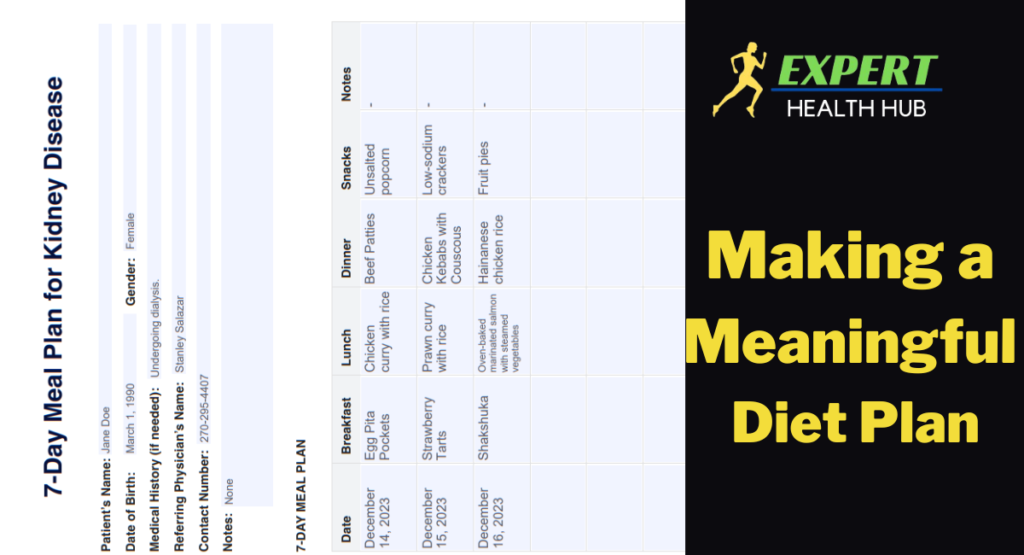
Unless you’re specifically discussing kidney-friendly beans, counting beans has no place in a kidney-friendly diet plan. Your kidneys will beg you for a high-five after every meal if you can come up with a week’s worth of great meals. Let’s dive into why a 7-day plan is the real MVP for kidney health.
Pro Tip: If you are interested in learning whether Is It Possible to Exercise Too Much Helpful for Health in 2024? then visit our site regularly. We will give you full and detailed information
Why a 7-day Meal Plan is Like a Kidney Carnival:
Supervising a week’s worth of meals is like throwing a kidney-themed extravaganza; it’s not just about being organized, though. In this article, we will reveal the reasons why this strategy is effective—the ones that are kind to your kidneys.
IV. Daily Meal Breakdown: A Food Fiesta:
Let’s talk about each day of the week like it’s a food fiesta, where every bite is a dance move for your kidneys. We’ve got breakfasts that kick off your day, lunches that are like a midday disco, and dinners that are the grand finale—all kidney-friendly and party-approved.
Pro Tip: If you are interested in learning about the Protein Shakes Near Me: Shake It Up Guide then visit our site regularly. We will give you full and detailed information
Nutrient-rich Breakfasts: Morning Dance Moves:
Starting your day with the right nutrients is like giving your kidneys a morning dance party. We’ll spill the secrets to delicious breakfasts that will make your kidneys do the cha-cha.
Balanced Lunches: Midday Disco Delights:
Lunch is more of a party than a feast, as indicated by your kidneys. Regardless of what sort of party food you’re wanting—quinoa with barbecued chicken or chickpea salad—we take care of you.
Pro Tip: Learn more about how to reverse gum disease
Light and Healthy Dinners: The Grand Finale Feast
Dinner, the final dish, is a flavorful and kidney-friendly extravaganza. A tofu or baked salmon stir-fry with vegetables, sweet potatoes, broccoli, and rice is the encore your kidneys deserve.
V. Incorporating Kidney-Loving Foods:
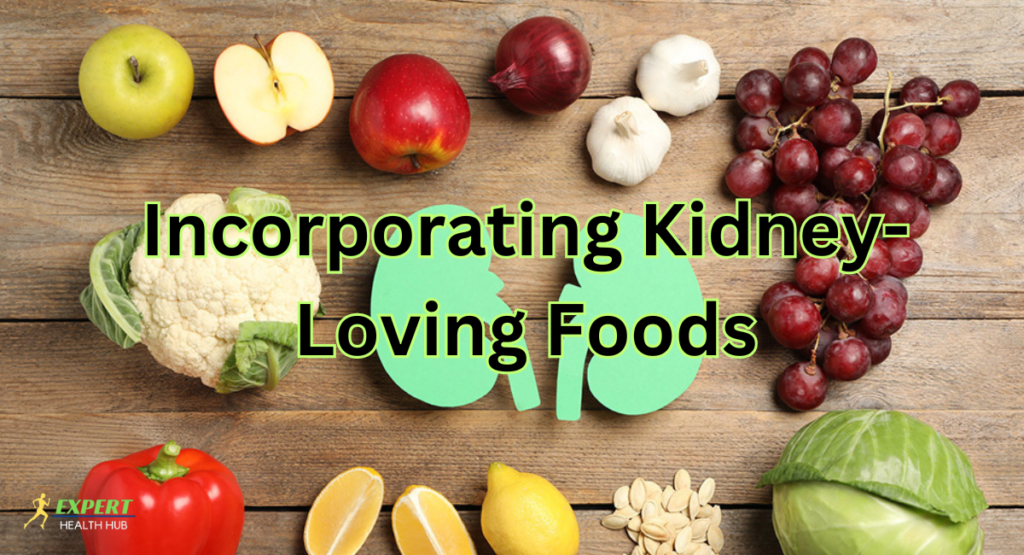
Learning which foods are good for your kidneys is like having access to the restaurant’s hidden menu. To ensure your kidneys receive the treatment they deserve, we will introduce the superstars and the no-nos.
Pro Tip: more learning about Lipton Hard Tea Nutrition Facts
Dietary Items That Are Good for Your Kidneys:
Berries, leafy greens, and fish rich in omega-3 fatty acids are like giving your kidneys a high five. Indulge your kidneys as they delight you.
Foods to Avoid: The Party Crashers
Some foods are like the party crashers of the kidney world. We’ll show you the ones to steer clear of, including high-sodium snacks and processed meats that are a big no-no for the kidney party.
VI. Catering to Kidney Parties and Diabetes Disco:
For those juggling both kidney concerns and diabetes, it’s like trying to coordinate two dance floors. We’ll share strategies for keeping both parties lively and your health groove on point.
Pro Tip: more learn about Bеst Slееping Position for Pеriphеral Artеry Disеasе
Balancing Meals for Diabetic Kidney Guests:
Managing both kidney concerns and diabetes is like spinning plates and doing the moonwalk. We’ll share tips for keeping both conditions in check, from portion control to picking the right dance moves.
VII. Printable Menu Chart: Because Even Parties Need a Plan:
To keep the kidney party going strong, we’ve got a menu chart you can print and stick on your fridge. It’s like a backstage pass to the ultimate kidney party—your guide to keeping the good times rolling.
Pro Tip: If you are interested in learning about Chronic Pain Syndrome ICD 10: Decoding the Alphabet Soup of Pain then visit our site regularly.
VIII. Navigating Stage 3 Kidney Funk:

As kidney funk sets in, dietary needs change like the beat of a drum. We’ll offer specific menu notes for those in stage 3 of the kidney funk. But remember, it’s always best to check in with your healthcare DJ for personalized advice.
IX. Combating Kidney Stones: Dodging the Unwanted Party Crashers
Preventing kidney stones is like avoiding unwanted party crashers. We’ll suggest a 7-day meal plan aimed at dodging these uninvited guests through proper nutrition. Think hydration and smart food choices; it’s like VIP security for your kidneys.
Pro Tip: If you are interested in learning the What is the Potential of Bioxtron for Diabetes Management? then visit our site regularly. We will give you full and detailed information.
XI. Conclusion: Your Kidney’s Standing Ovation:
I have guided you in detail about the 7 day meal plan for kidney disease in this article. If you have read this article carefully, you have come to know about the 7 day meal plan for kidney disease. In conclusion, throwing a party for your kidneys with a well-crafted 7-day meal plan is like giving them a standing ovation.
By understanding what foods make your kidneys groove and keeping the menu on the beat, you’re setting the stage for a health party like no other. Let’s keep the rhythm alive and the kidney dance moves to go strong.
If you have questions about the 7 day meal plan for kidney disease, you can ask me in the comment section, and I’ll answer your questions quickly.
Pro Tip: Learn more about Cure autoimmune disease in 30 days then visit our site regularly. We will give you full and detailed information.
X. Frequently Asked Questions (FAQs):
Q1: What breakfast foods are like a morning dance party for kidneys?
A1: Picture your kidneys doing the cha-cha with options like oatmeal and berries, a banana-nut smoothie, or whole-grain toast with almond butter.
Q2: What foods are the rockstars for healing kidneys?
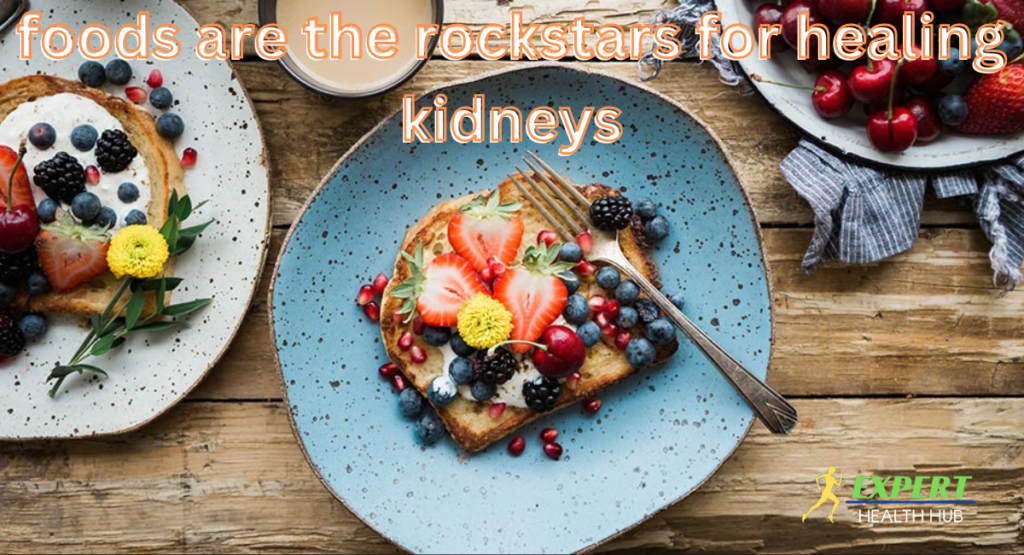
A2: Leafy greens, berries, and omega-3-rich fish are the true rockstars for kidney health. They’re like the headliners in your body’s concert for wellbeing.
Q3: Can kidney patients enjoy rice without worrying about the party?
A3: Absolutely! Picture your kidneys doing the salsa in moderation with brown rice. Just keep an eye on the portion sizes, and it’s a fiesta for your kidneys.
Q4: What exercise moves are like a dance-off for kidneys?
A4: Low-impact dances like walking and swimming are the dance-off champions for your kidneys. Think of it as a smooth groove for your health. But, of course, check in with your healthcare dance instructor before you hit the floor.
Q5: Are eggs good dancers for kidneys?
A5: Eggs have some smooth moves in the protein department, but they should be on the dance floor in moderation. Your healthcare dance partner can help you find the right rhythm for your dietary needs.
Pro Tip: If you are interested in learning about how to boost immune system while taking methotrexate then visit our site regularly.
